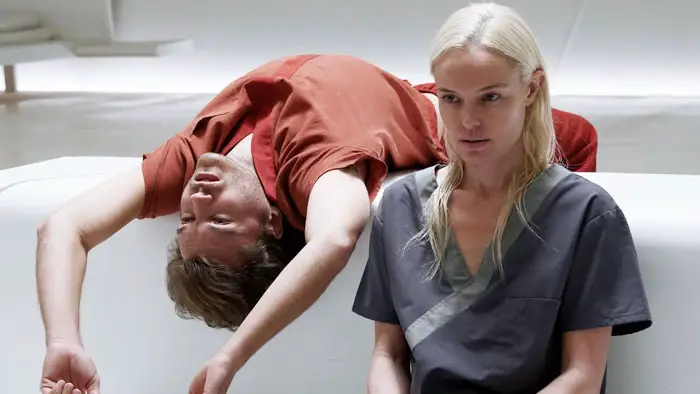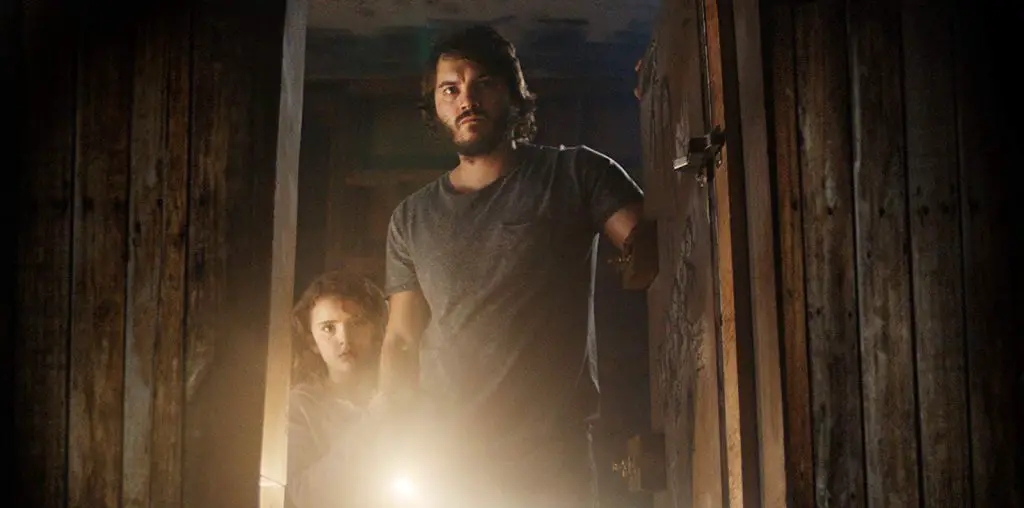
During the Covid-19 pandemic and lockdown, we all went through isolation to varying degrees. We’re still reeling from the effects as a society, be it with increased rates of mental illness, addiction, road rage, and public aggression. Knowing the toll, would you spend fifty days in isolation for five million dollars? We all lost valuable time with friends and family that we will never get back, is any amount of money worth that? This profound concept is explored in writer/director Mukunda Michael Dewil’s The Immaculate Room, with the help of some great acting by the two leads, Kate Bosworth and Emile Hirsch.
Mike (Emile Hirsch) and Kate (Kate Bosworth) are a young, attractive couple who decide to brave a psychological experiment: the aforementioned isolation for money. No phones, television, or family are allowed in; only the Siri-like voice of the Immaculate Room is around to provide any guidance as the digital clock ticks away.
The premise is an interesting one, even if it seems familiar to the audience. Pre-pandemic, it may have seemed like a no-brainer to spend fifty days in a futuristic-looking white room in complete isolation in order to win the money. But, after experiencing a version of that ourselves, it’s a whole different story.

“…would you spend fifty days in isolation for five million dollars?”
There is a certain amount of predictability to The Immaculate Room since it doesn’t take a psychologist to know that issues will spring up between a couple when they’re locked in a room for a long period of time, whether they went into it happy or not. However, Hirsch and Bosworth keep it all interesting because this concept would fail miserably in the hands of lesser actors.
The film also features a surprise in the third act in order to spice things up. The screenplay and directing by Dewil do a good job of showing the mundane aspects of being isolated without treading into snooze fest territory. This is achieved by keeping the audience fixated on the couple’s interactions and choices, as well as the few devices that are used to change up the dynamic.
One of those devices is that Mike and Kate are each allowed up to two “treats.” The treats are surprises, with no one knowing what they will be, and they are costly. The first one automatically deducts one hundred thousand dollars from the prize money, and the second one costs an additional two hundred and fifty thousand. Is it worth losing money in order to gain a distraction on the inside? It’s another fun “what would you do” question to ponder in a film full of such queries.
We most likely are all still suffering from lockdown fatigue, but even still, I was fascinated and entertained by The Immaculate Room. It’s a showcase for what great independent filmmaking is all about, taking an interesting concept and applying excellent acting and directing on a limited budget. I will say that the ending felt a little weak to me, but the film is akin to life in general in that the most important aspect is the journey.
"…a showcase for what great independent filmmaking is all about..."



[…] as per Film Threat, The Immaculate Room is “a showcase for what great independent filmmaking is all about, […]